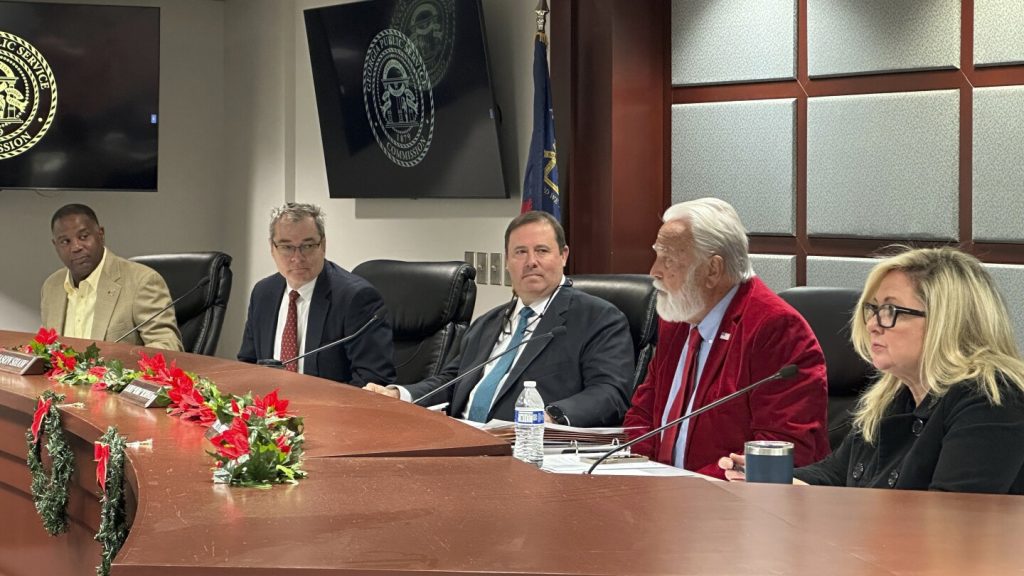Georgia’s Public Service Commission, an elected body responsible for regulating what Georgia Power Co. and some natural gas companies charge, has not had elections in years due to a redistricting lawsuit. With a court likely to order elections to resume, Georgia lawmakers have proposed adding two extra years to the six-year terms of commissioners on the all-Republican body. The bill, known as House Bill 1312, has been approved by both the Georgia House and Senate and awaits the decision of Gov. Brian Kemp. This move is seen as a way to prevent a majority of the commission seats from being elected at the same time, potentially hindering Democrats from taking control in a single election.
The lawsuit behind the bill sought to force commissioners to be elected from districts rather than statewide. A federal judge ruled in 2022 that statewide voting was unlawfully diluting the power of Black voters, leading to a ban on statewide elections and an order for district-based elections. However, the ruling was overturned by a three-judge panel of the 11th U.S. Circuit Court of Appeals, allowing Georgia to choose its preferred form of government for the commission. Despite the reversal, a final order has not been issued in the case, leaving the original judge’s ruling still in effect. This has resulted in commissioners like Tim Echols, Fitz Johnson, and Tricia Pridemore remaining in office without facing elections.
The plaintiffs in the case have considered appealing to the U.S. Supreme Court to challenge the 11th Circuit’s ruling, expressing disappointment that commissioners are currently not facing any elections and may be granted additional years in office. The proposed plan would require Echols and Johnson to run for reelection in 2025, extending Johnson’s term to 2026 and Echols serving until 2030. Pridemore’s term would be extended until 2026, providing her with eight years in office. Commissioners Jason Shaw and Bubba McDonald, scheduled for reelection in 2026, would serve until 2028 before resuming regular six-year terms. Senate President Pro Tempore John Kennedy defended the plan, stating that it would establish a guide for future elections, ensuring staggered terms for the commission.
Some Democrats have raised concerns about the extended terms, questioning the delay in allowing voters to have a say in the commission’s composition. Senator Elena Parent described an eight-year term as excessively long, highlighting the importance of voter participation in selecting members of such a significant body. While some commissioners declined to comment on the bill, Brionte McCorkle, executive director of Georgia Conservation Voters, criticized the lack of elections, asserting that Georgia Power’s interests are being safeguarded without electoral accountability. Despite the controversy surrounding the proposed plan, its implementation would reset the election cycle for the Georgia Public Service Commission, potentially reshaping its future composition and decision-making processes.


